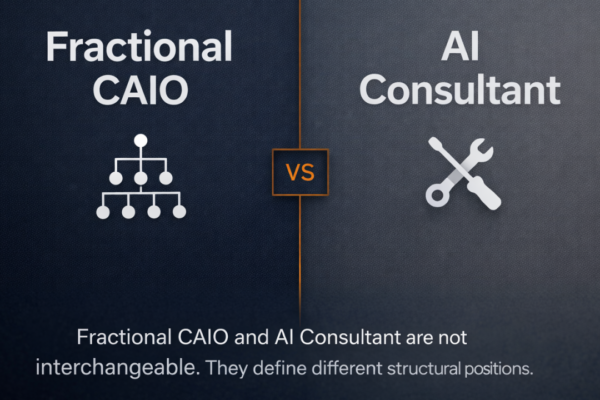
AI for Customer Experience: How Smart Brands Are Winning Loyalty
Customer loyalty, the holy grail for any business, isn’t built on grand gestures or fleeting promotions. It’s painstakingly crafted through consistent, personalized experiences that make customers feel valued, understood, and effortlessly served. In an era where consumers are bombarded with options, Artificial Intelligence (AI) is emerging as the secret weapon for brands striving to create those experiences and foster lasting relationships.
For years, businesses have chased the dream of truly knowing their customers. Traditional methods, like surveys and focus groups, provide limited, often biased, snapshots. AI, however, unlocks a deeper, more nuanced understanding by analyzing vast datasets of customer behavior across various touchpoints – website activity, purchase history, social media interactions, email engagement, and even sentiment analysis of voice calls and chat logs. This comprehensive perspective allows businesses to move beyond generic segmentation and deliver hyper-personalized experiences that resonate with individual needs and preferences.
Personalization at Scale: The Power of Recommendation Engines
One of the most visible applications of AI in customer experience is through recommendation engines. These intelligent systems analyze past purchases, browsing history, and demographic data to suggest products or services a customer is likely to find valuable. Amazon, a pioneer in this field, leverages AI to personalize product recommendations, promotional offers, and even search results. Netflix uses AI to curate personalized movie and TV show recommendations, increasing user engagement and reducing churn.
The key to effective recommendation engines isn’t just suggesting relevant products; it’s understanding the context of the customer’s current needs. For example, if a customer recently purchased hiking boots, the recommendation engine might suggest waterproof socks or trekking poles, rather than unrelated items. This level of contextual awareness enhances the customer experience by anticipating their needs and offering helpful solutions.
Beyond e-commerce and entertainment, AI-powered recommendation engines are transforming industries like finance and healthcare. Banks can use AI to suggest relevant financial products, such as investment opportunities or loan options, based on a customer’s financial profile and goals. Healthcare providers can use AI to personalize treatment plans and provide tailored health recommendations based on a patient’s medical history and genetic predispositions.
Speed and Efficiency: AI-Powered Customer Support
Another critical aspect of customer experience is the speed and efficiency of customer support. In today’s on-demand world, customers expect instant gratification. Waiting on hold or navigating complex phone menus can quickly lead to frustration and negative brand perception. AI-powered chatbots are revolutionizing customer support by providing immediate, 24/7 assistance.
These chatbots, fueled by Natural Language Processing (NLP) and Machine Learning (ML), can understand customer inquiries, answer frequently asked questions, troubleshoot technical issues, and even process basic transactions. They can handle a wide range of customer service tasks, freeing up human agents to focus on more complex and sensitive issues.
The benefits of AI-powered customer support are manifold. Customers receive immediate assistance, reducing wait times and improving satisfaction. Businesses reduce operational costs by automating routine tasks and freeing up human agents. Moreover, AI chatbots can collect valuable data about customer needs and pain points, which can be used to improve products, services, and processes.
Leading brands are going beyond simple chatbots and integrating AI into their entire customer support ecosystem. AI-powered sentiment analysis can identify customers who are frustrated or angry, allowing human agents to proactively intervene and de-escalate the situation. AI can also analyze customer interaction history to provide agents with relevant information and context, enabling them to resolve issues more quickly and effectively.
Proactive Engagement: Anticipating Customer Needs
The most sophisticated applications of AI in customer experience go beyond reactive problem-solving and focus on proactive engagement. By analyzing customer data and predicting their future needs, businesses can reach out to customers before they even encounter a problem.
For example, an airline might use AI to predict which passengers are likely to miss their connecting flight due to delays. The airline can then proactively offer alternative flight options or hotel accommodations, mitigating the impact of the delay and enhancing the customer’s overall travel experience. Similarly, a subscription service might use AI to predict which customers are likely to cancel their subscription. The service can then offer targeted incentives, such as a discount or a free upgrade, to retain those customers.
Proactive engagement not only prevents problems but also creates opportunities to build stronger relationships with customers. By anticipating their needs and offering helpful solutions, businesses demonstrate that they truly care about their customers’ well-being. This fosters a sense of trust and loyalty that can be difficult to replicate through traditional marketing tactics.
Building Deeper Relationships: AI and Emotional Connection
While AI is often associated with efficiency and automation, it can also play a role in building deeper emotional connections with customers. By understanding customer preferences, behaviors, and even emotions, businesses can tailor their interactions to create a more personal and empathetic experience.
For example, a customer service agent might use AI to identify a customer who is going through a difficult time. The agent can then offer a more empathetic and supportive response, going beyond the standard script to provide genuine human connection. Similarly, a marketing campaign might use AI to personalize the messaging and imagery based on a customer’s emotional state, creating a more resonant and impactful experience.
Ultimately, the goal of AI in customer experience is to create a seamless, personalized, and emotionally resonant journey for each individual customer. By leveraging the power of AI, businesses can move beyond transactional relationships and build lasting bonds of loyalty that drive long-term growth and success. The future of customer experience is here, and it’s powered by AI.
Want to stay ahead of the curve and speak the language of AI fluently? Equip yourself with the essential vocabulary and understanding to navigate this rapidly evolving landscape. Purchase your copy of The AI Business Dictionary: 200 Must-Know Words, Phrases, and Definitions today at https://store.mymobilelyfe.com/product-details/product/ai-business-dictionary and unlock the secrets to AI success!


















































































































































































Recent Comments